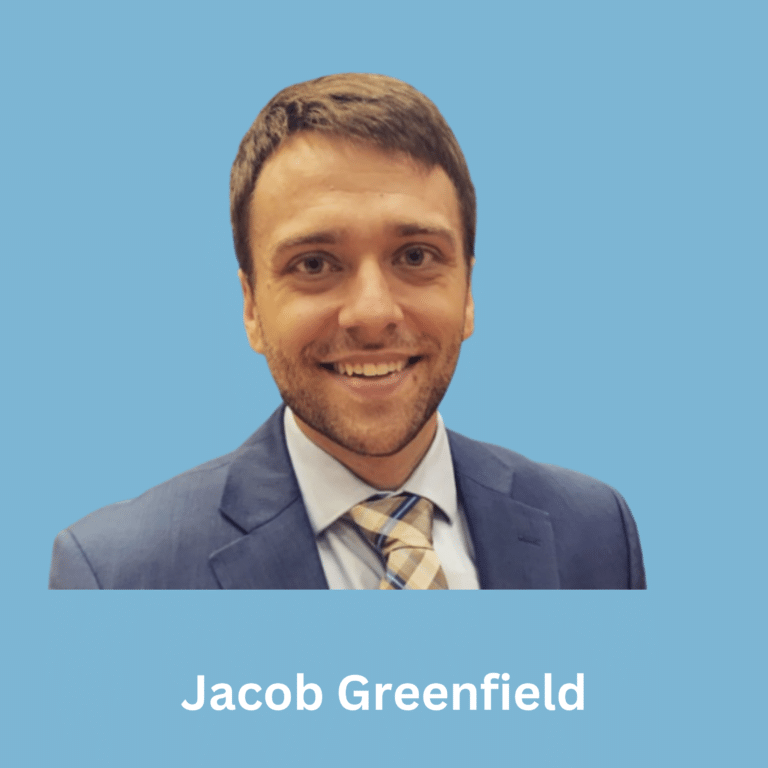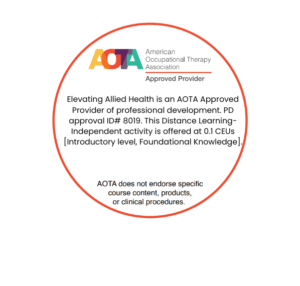Supporting OT Practice Through Social Determinants of Health (SDOH)
A CE Podcast with Jacob Greenfield OTD, OTR
Listen for Free

With an estimated 80% of health outcomes driven by social determinants of health (SDOH), OT can play a considerable role in addressing SDOH. To do this, we must explore the broader structural and social issues impacting the health of our society.
We are excited to welcome our expert guest, Jacob Greenfield, OTD, OTR/L, to the launch of our CE podcast. Jacob is a practicing OT and Assistant Professor of Occupational Therapy at West Virginia University. He is involved in community-based initiatives to address health inequalities and has also co-authored a peer-reviewed article on the impacts of social determinants of health on work.
We look forward to the interview, where he will share his experience and insights into the future of social determinants of health within OT.
This 1-hour continuing education podcast will discuss occupational therapy’s involvement in addressing SDOH.
Learning Objectives
1. Describe the impact of SDOH on health and wellness.
2. List two system approaches for addressing SDOH
within occupational therapy.
3. Recognize the impact of psychosocial factors on health outcomes.
Self Paced
Claim CE Certificate for Free
1 Contact Hour (0.1 CEU)
Educational Level: Introductory
Category 3: Foundational Knowledge
If you need assistance or accommodations, please contact us at support@elevatingalliedhealth.com
Prerequisites: None
Target Audience Occupational Therapists, Occupational Therapy Assistants, Occupational Therapy Students
Interview Conducted by: Emily Ried, OTD, MA, OTR/L
Course Agenda
Introduction to SDOH (0-15 minutes)
- What are social determinants of health (SDOH)?
- Examples of SDOH.
- SDOH through the OT practice framework.
- Screening and assessments
- SDOH and the Electronic Health Record (EHR)
- Social and Structural Frameworks
SDOH in Practice: Interview Jacob Greenfield (16-60 minutes)
- Tell us about how you became involved in community OT?
- Recent OT literature focuses on structural competency. How can OTs improve structural competency.?
- What roles have you or your OT colleagues served to address SDOH in the community?
- Building a strong educational foundation for SDOH seems important for OT practitioners. Are there any core initiatives in education to support SDOH education for OT students?
- Social vulnerability has been recently studied in relation to health outcomes. As OTs, what steps can we take to address social vulnerability?
Completion Requirements
In order to receive credit for the course you must meet the following criteria:
Listen to the corresponding podcast
Complete course survey
Pass the course with a grade of 70% or greater
Complete the post-course attestation and assessment.
Course Refunds and Accomodations
Refund Policy
Full refunds will be given for participants who experience technical difficulties or express dissatisfaction with the course at any time prior to completion of the post-test. Refunds will be processed within 7 business days of the customer’s refund request. Refund requests can be emailed to support@elevatingalliedhealth.com
Special Needs Requests
Elevating Allied Health will make accommodations in accordance with the Americans with Disabilities Act (ADA). If you require specific accommodations because of a disability by emailing support@elevatingalliedhealth.com
Requests may also be made by calling the Program Coordinator at, at 252-714-8568 between 9:00 AM–5:00 PM ET Monday-Friday.

